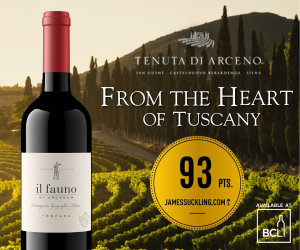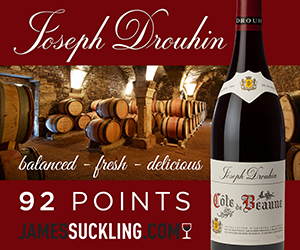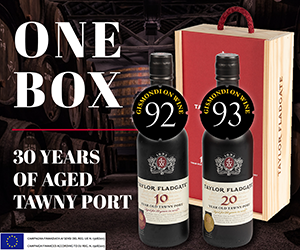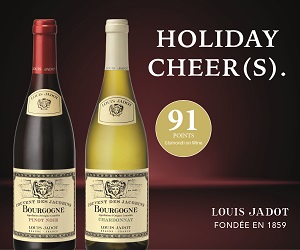Dr.
Loosen to release its first bottling with Stelvin
® screwcapsContinuing frustrations with natural cork compel the highly regarded German winery to switch
BERNKASTEL/MOSEL, GERMANY -- Loosen, a top-rated German wine producer, has decided to begin using the Stelvin
® screwcap closure for its popular second-label wine, L Riesling. Bottling of the 2003 vintage with screwcaps is scheduled to begin in February, 2004.The industry-wide problem of cork taint was compounded last year by a batch of defective corks in one bottling of the 2002 L Riesling. In an unusual situation, some bottles had corks that wouldn't budge when you tried to remove them with a corkscrew, then crumbled and broke apart when more force was applied. "It's like they were glued into the bottle," said Ernst Loosen, owner of Loosen, "and we have no idea what the problem was. It's bad enough that we should have to expect a certain percentage of cork taint in our wines, but it's just ridiculous when you can't even get the cork out of the bottle. The L Riesling is the wine that introduces people to our estate, and these corks made for a pretty lousy first impression. It's totally frustrating."
Loosen has been conducting closure trials at his estate for several years, and he has participated in numerous taste tests and seminars around the world, particularly in Australia. Loosen co-presented a Master of Wine student seminar in Australia with Geoffrey Grosset, who showed two samples of the same wine, one bottled with natural cork and the other with Stelvin. "There was no question that the screwcap wine was fresher and more lively," says Loosen. Still, he had not been planning to start using screwcaps. "We didn't think they were right for our wines," said Loosen. "But the problems with the 2002 L showed us that we needed to do something. Then a very good customer in Britain asked us to do a special L bottling for them using Stelvin and we thought, what the hell, let's do it all with screwcaps and avoid these problems altogether."
Loosen estate wines will be bottled with the Cortex Preserveur
® cork For the 2003 vintage, only the L Riesling will be bottled with the Stelvin® crewcap. The estate-grown wines of Loosen will continue to be bottled with natural cork, but the estate will be switching from regular corks to the Cortex Preserveur® cork. This is a French invention that sports a silicone disk at the base of a natural cork to provide a sterile barrier that prevents cork taint. "We have been testing this cork for several years with very positive results," says Loosen. He used the Cortex cork for a limited number of bottlings since the 2001 vintage, and response from consumers and the trade has been favorable. "We're very happy with it. We're still convinced that natural cork is best for our higher-quality, Prädikat wines, especially for the wines with long-term cellaring potential," Loosen says. "The Coretex cork gives us the advantages of natural cork, but eliminates the danger of corkiness in the wines."The battle against cork taint rages on in the wine industry, and numerous closure alternatives have been introduced. Loosen has considered them all. For now, he has settled on the Stelvin
® screwcap for the early-drinking, introductory L Riesling, and the Cortex silicone disk cork for the estate-bottled wines. But there are some very interesting new ideas being developed that should reach the market in the next few years. Loosen is particularly intrigued by a glass stopper, called Vino-Lok, being developed in Germany. "We saw this new glass stopper at the ProWein show and it looks very promising," he says. "It provides an absolutely clean seal and it makes a very attractive package." Loosen is eager to test this new closure, but even as soon as it is available on the market. However, it will be some years before he knows how his Loosen wines will develop bottled entirely in glass. On the other hand, if it works well, it could bring a major change in how wine is bottled all over the world -- "A rather frightening idea for the cork industry, I imagine, but it's an exciting prospect for growers like us," adds Loosen.The Loosen estate produces only Riesling from its very old vines in top-class vineyard sites in the Middle Mosel. Being Riesling specialists makes them especially sensitive to the issue of cork taint, since it is so easily detected in Riesling's pure, crystalline fruit flavors. Heavy cork taint is obvious and unmistakable because of its musty, wet cardboard odor. But even a tiny amount of cork taint can mar a great Riesling, deadening its delicate expression of fruit and terroir. "It's very upsetting when we encounter a corked bottle of our wine," says Loosen.
"We work so hard in the vineyard and in the cellar to produce what we think are bold, terroir-driven Mosel Rieslings, and to see one ruined like that really makes your heart sink."

 quicksearch
quicksearch






